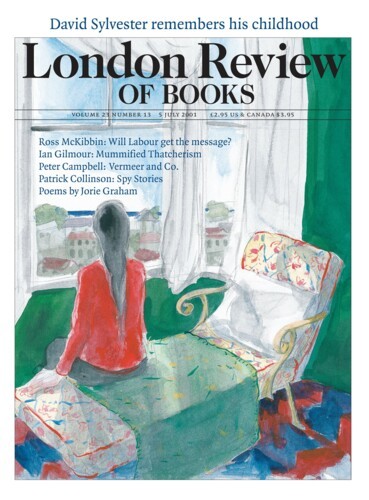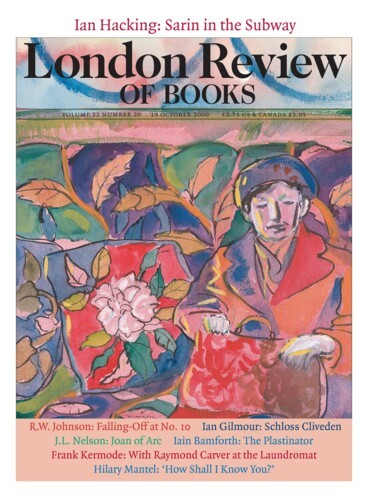The other side have got one: Lady Thatcher’s Latest
Ian Gilmour, 6 June 2002
‘In a progressive country,’ Disraeli told his Edinburgh audience after the passage of the 1867 Reform Bill, ‘change is constant; and the great question is, not whether you should resist change which is inevitable, but whether that change should be carried out in deference to the manners, the customs, the laws and the traditions of the people, or in deference to abstract...




